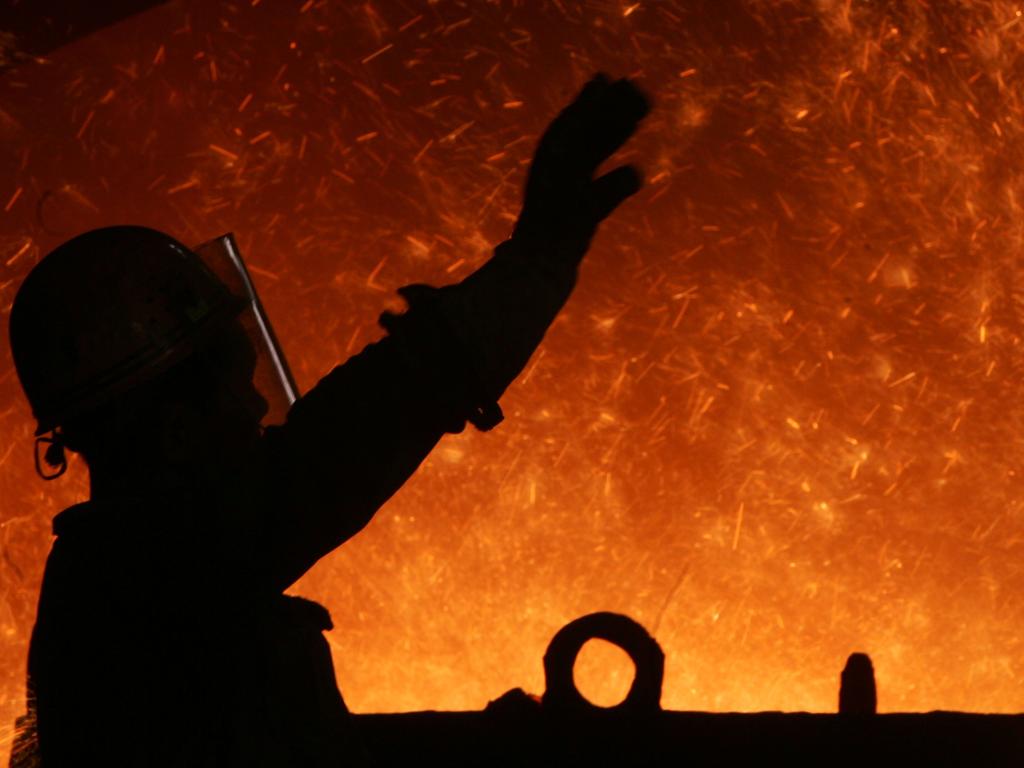Business networks can solve China trade impasse, Canberra told
Businesses involved in $149bn export trade to China urge government to find ‘circuit breaker’ to mend relations.

Businesses involved in the $149bn export trade to China are urging the Morrison government to find a “circuit breaker” to mend relations with Australia’s biggest trading partner.
David Olsson, chairman of the Australia China Business Council, said the government should better use the business community to help find a “circuit breaker for the current impasse”.
“Our connections and networks have been built at individual and institutional levels over many decades and carry weight and influence, but have not been properly leveraged to date,” said Mr Olsson, the Hong Kong-based international director at law firm King & Wood Mallesons. “Now is the time to do that.”

The comments were made at a closed briefing with Trade Minister Simon Birmingham, Australia’s China ambassador Graham Fletcher and Australia China Business Council members, held on Friday, hours before a mooted, sweeping ban on Australian exports to China was said to be imposed.
Reports of the ban on imports of Australian wine, lobster, copper, sugar, timber and coal — which was said to begin on Saturday — mounted throughout last week, creating huge anxiety among exposed businesses.
There were no immediate signs of an escalation of customs issues over the weekend, but there have been hold-ups of wine, lobsters and coal in recent weeks, and all timber from Queensland has been banned.
Former prime minister Kevin Rudd said the trade trouble came after the Morrison government rejected two recent “olive branches” from Beijing, a speech by China’s deputy ambassador in Canberra Wang Xining and an interview by an influential former ambassador Fu Ying.
Mr Rudd said Japan demonstrated a way to manage the China relationship without the “massive roller coaster we see with Australia”. “Morrison should look to Tokyo in the way in which we model this Australia-China relationship in the future,” he told the ABC.
Chinese officials first denied last week’s reports on the sweeping ban as “rumours”, then said the “reduction in imports of the pertinent Australian products was the companies’ own decision” and on Friday said the country’s policies on foreign imports were “reasonable, legitimate and thus beyond reproach”.

At the Friday briefing, Mr Olsson said the episode demonstrated “the harsh realities of trading with China”.
“Geoeconomics 101 is now essential reading for all directors and business owners,” he said.
But he called on the government to “work collaboratively together (with business) to formulate a realistic new China policy that addresses both the opportunities and the challenges that China presents”.
Labor’s trade spokeswoman Madeleine King has also urged the government to hold a forum to “listen to corporate leaders who are gravely concerned about the relationship, and who have a legitimate place in this important national discussion”.
Senior officials from the Morrison government held another crisis briefing on Thursday with agricultural industries, which emphasised the need to diversify from China.
One agricultural industry association told The Australian he and others listening to the phone briefing were frustrated with the government’s China policy.
“We’ve obviously got a security strategy — but how does our economic strategy fit into it?” he said, asking not to be named because of the political sensitivities.
At the Friday business briefing, the Trade Minister told businesses the government remained “ready and willing to engage (with China) at any point in time in terms of proper political dialogue and ministerial exchange”.
But he said that engagement had to respect Australia’s “firm parameters”.
“Australia, like any other sovereign nation, will seek to protect our interests, our institutions. Everybody should expect no less of us and we expect no less of any other nation,” he said.
Despite the fears about the trade deterioration, many of the more than 180 Australian companies with stalls at China’s biggest annual trade show said things had gone well.
AustCham Shanghai’s executive director Bede Payne said a significant number of his members attending the trade fair — which began last week in Shanghai — had signed contracts and memorandums of understanding, and had a large number of client leads.
“Consumer demand for clean, green and safe Australian products doesn’t seem to have been damaged,” he said. The backbone of Australia’s $149bn China exports continued untroubled.
A supervisor at Tianjin Port, the biggest in the north of China, which sits 170km southeast of Beijing, told The Australian: “I can tell you that iron ore is arriving as usual from Australia.”







